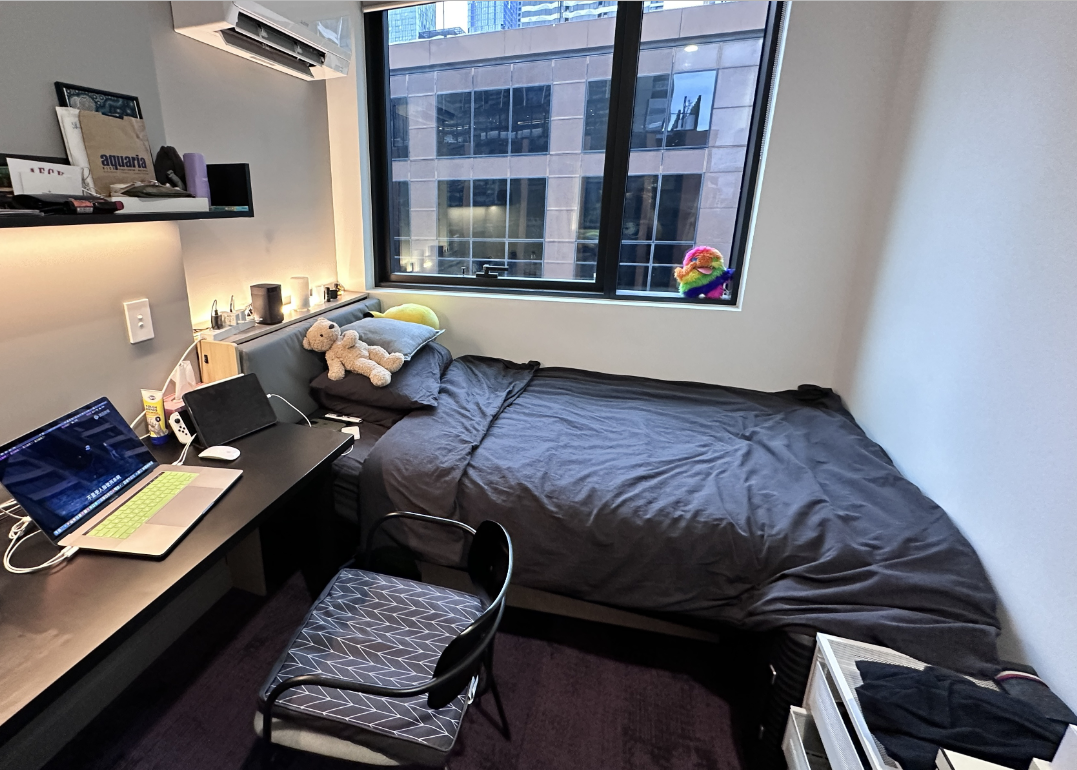
International students in Melbourne are suffering from the pressure of consistently rising rents
International students in Melbourne are suffering from the pressure of consistently rising rents this year, making rent-seeking more challenging.
Helen Zhang, a master student from University of Melbourne, said seeking an apartment in
Melbourne now will face great competition, and to rent the most preferred property successfully is even a very small possibility.
“There are more than ten visitors for almost every property we have inspected, and we need to compete with them,” the 24-year-old said.
After living in Melbourne for one year, Zhang had to move this month as her previous landlord wanted to increase the weekly rent from $680 to $800, which is out of budget for her and her roommate.
Their new apartment is next to Southern Cross Station, Melbourne’s busiest railway station. It is the most affordable accommodation they have found in the city.
“There is always a lot of noise, we can hear the train even when we are resting,” she said.
Zhang’s current weekly rent is $775. Even though she felt it was “overpriced”, so they rented out the property’s parking space for $70 per week.
“My current job pays me $24 per hour, which doesn’t cover my living expenses in Melbourne at all,” she said.
Zhang is now working part-time as a salesperson, but her living and education costs are still heavily relying on her family in China.
She used to work no more than 20 hours a week, but the rising rental cost has caused her to hang out less frequently, and to ask for more shifts.
The Weekly Rents Index of SQM Research shows that the average weekly rent for 2-bed units in Melbourne City has reached $702 in April 2024, compared to $676 in the same period in 2023 and $528 in 2022.
Even more, some tenants will actively increase their amount of offer to make the landlord prioritize them.
Zhang thought this trend was “unhealthy”, so she did not follow.
Gloria Zhang, another University of Melbourne student who has lived in Melbourne for three years said renting an apartment for international students in Melbourne was as difficult as finding a job.
“Those landlords usually prefer to rent to people with Australian permanent residency or a stable job here. Therefore, international students must prepare lots of background documents as well as proof of deposit which is strong enough if they want to sign a lease successfully,” she said.
Landlords have their own considerations. Luo Chen, from Vancouver, Canada, bought an
apartment in Southbank, near Melbourne City, five years ago and rented it out.
The property is currently rented by a programmer. Chen believed that people working in
Melbourne are more ideal tenants as they have a fixed source of income and are willing to sign longer lease terms than international students.
Chen regarded this as an investment.
“Everyone buying a property here will definitely expect the return to be as high as possible. The market climate now is the increasing demand. So, when others raise their rents, I have to do so,” she said.
According to Institute of Public Affairs, a Melbourne-based public policy think tank, the housing shortage caused by booming numbers of immigrants and international students has led to the increasing market price for renting.
As shown in the Rental Report of Victoria State Government, Melbourne’s Metropolitan Rent Index increased by 15.2% in December quarter 2023 compared to the same period last year, which is much higher than the long-term average annual increase of 3.4% over the last decade.
Besides residential apartments, many international students live alone in student studios, where the actual conditions often do not match their high rent.
Vince Wu, an upcoming graduate student, is one of them.
Wu would prefer to be on campus throughout the day than in the confined space of his student studio which costs $505 per week.
“My studio only has a bed, a desk, a chair, a small closet, and a very small bathroom. I didn’t even have more space for another chair,” he said.
Given these, Helen Zhang reminded that the lucrative sector of the “Education State” of Victoria should be taken seriously.
“While benefiting from the consumption of international students, I’d like to see the government and the university to be responsible for our well-being. It might be better if they could provide us with some rental subsidies or discounts on student accommodation,” she said.
Melbourne is one of the best student cities throughout the world in terms of educational
opportunities, affordability, and cultural diversity in the QS Best Student Cities index 2024.
International education sector in Victoria received $8.4 billion in revenue in 2022 and supported more than 40,000 jobs across the state, according to an official statement.
However, students like Zhang are already thinking about looking for cheaper accommodation in the future amid the rising cost of living.
“Maybe next time I will consider moving to the suburbs,” she said.
Post a comment